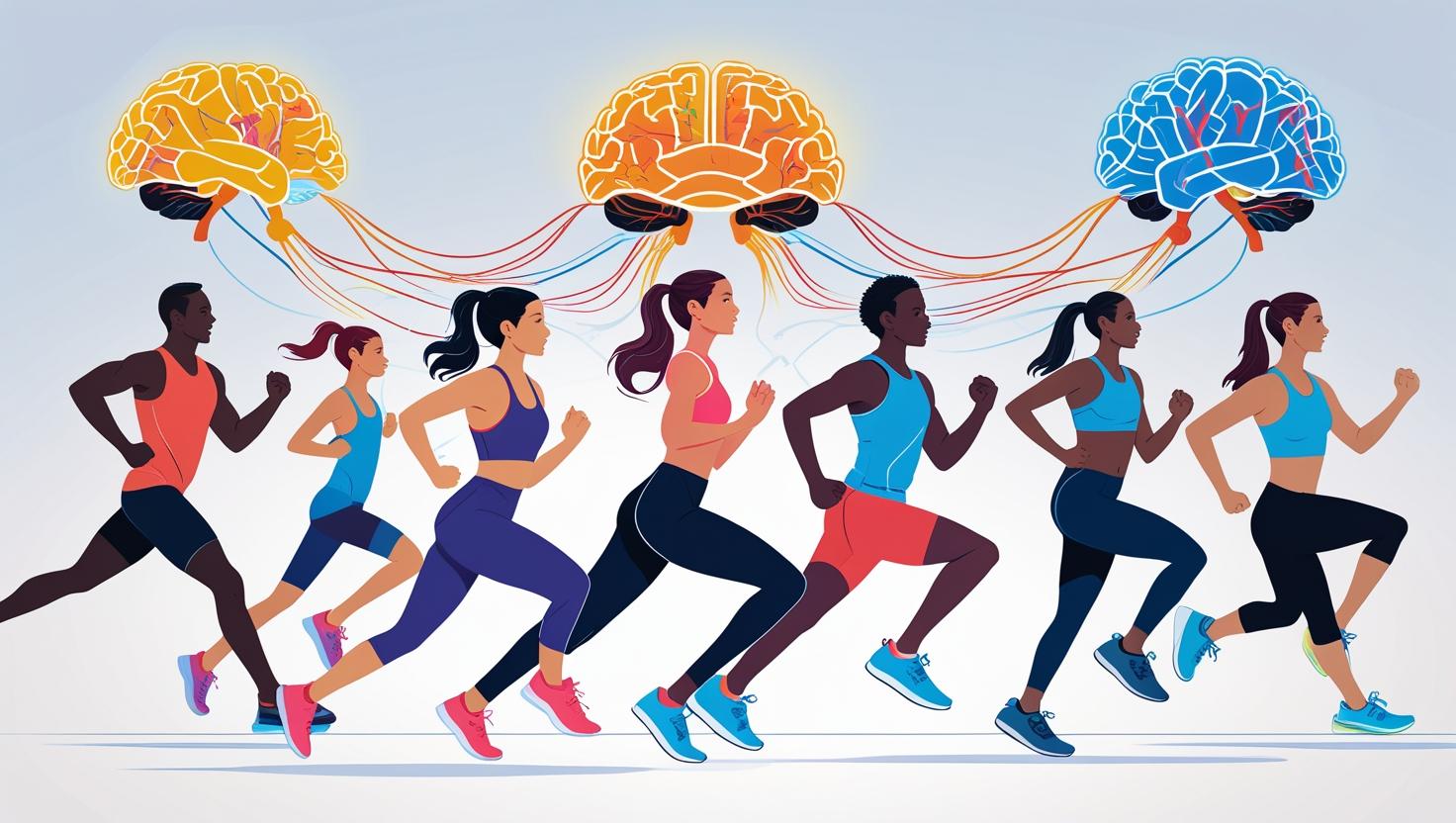
Exercise and the Brain: The Cognitive Power of Physical Activity
Physical activity is widely recognized for its benefits to cardiovascular and musculoskeletal health. However, emerging research continues to highlight the profound impact that regular exercise has on brain function. Just 30 to 40 minutes of daily movement can lead to meaningful improvements in mental clarity, emotional resilience, and long-term cognitive health.
Below are several evidence-based ways in which exercise supports and enhances brain function:
 1.
Cognitive
Enhancement
and
Neurogenesis
1.
Cognitive
Enhancement
and
Neurogenesis
Engaging in regular cardiovascular exercise promotes the release of brain-derived neurotrophic factor (BDNF) and other growth factors, which support the development of new neurons and blood vessels. This neurogenesis plays a key role in enhancing cognitive performance, particularly in areas such as learning, memory retention, and information processing.
2. Reduction of Stress and Anxiety
Exercise is an effective tool for managing stress. Physical activity reduces levels of cortisol, the body’s primary stress hormone, while increasing the production of endorphins—natural chemicals that promote a sense of well-being. Over time, this hormonal balance can result in improved emotional regulation and decreased symptoms of anxiety.
 3.
Improved
Neural
Connectivity
3.
Improved
Neural
Connectivity
Studies have demonstrated that consistent aerobic exercise strengthens the connectivity of various brain networks, particularly those responsible for executive function. This improved integration enhances attention span, problem-solving capacity, and decision-making abilities, contributing to more efficient mental performance.
4. Slowing of Age-Related Cognitive Decline
Long-term physical activity has been shown to help maintain brain volume and protect against age-related decline. Individuals who engage in regular exercise experience slower progression of cognitive deterioration and are at a reduced risk for neurodegenerative diseases such as Alzheimer’s. These benefits are particularly significant in the hippocampus, a region critical for memory.
 5.
Mood
Stabilization
and
Emotional
Health
5.
Mood
Stabilization
and
Emotional
Health
Aerobic exercise can also serve as a valuable adjunct to mental health interventions. By increasing the availability of neurotransmitters such as serotonin and dopamine, regular physical activity supports improved mood, reduced depressive symptoms, and greater emotional stability over time.
.jpg) 6.
Enhanced
Sleep
Quality
6.
Enhanced
Sleep
Quality
Physical activity has a positive influence on sleep architecture. Regular movement helps regulate circadian rhythms, making it easier to fall asleep and maintain restful sleep. In turn, high-quality sleep supports cognitive function, emotional regulation, and overall mental clarity.
Conclusion
The benefits of exercise extend far beyond physical fitness. From improving memory and attention to reducing the risk of cognitive decline, regular physical activity plays a critical role in supporting long-term brain health. Incorporating consistent movement into daily routines can be a powerful strategy for enhancing mental performance and emotional well-being.
Have you observed cognitive or emotional improvements through regular exercise? Your insights may encourage others to take the first step toward a more active, brain-healthy lifestyle.
- Julie "Brain Lady" Anderson
